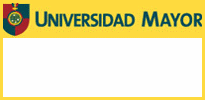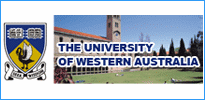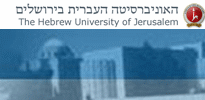Gambia: University of The Gambia
2011/07/16
![]() Program of Diploma / Degree Courses:
Program of Diploma / Degree Courses:
• Law School of Gambia
· Bachelor of Law
· Para Legal Diplomas and Certificate
• Medical School of Gambia
Bachelor of Medicine / Surgery
Bachelor of Science in Nursing and Midwifery
Bachelor of Science in Public Health
• School of Business & Public Administration
Bachelor of Science Degrees (BSc) in Accounting, Banking and Finance, Economics, Management, Tourism.
Diploma and other professional Certificates in Tourism and Hospitality Management, Accounting.
Management Development Institute (MDI)
• School of Engineering and Architecture which is new and restricted (for the moment) to offering a joint UTG – University of Dalhousie program in Community Design and Building program.
Gambia Technical Training Institute
• School of Information Technology and Communications offering (* Starting January).
Bachelor of Science in Computer Science
Bachelor of Science in Information Systems
Bachelor of Science in Software Engineering
Bachelor of Science in Telecommunications & Wireless Technologies
Bachelor of Science in Communications & Media
• School of Agriculture and Environment Sciences
Bachelor of Science in Agriculture, Biology and Environment Sciences
Higher Diploma in Agriculture (HDA)
Higher Certificate in Agriculture
• School of Arts and Sciences offering
Bachelor of Arts/Science Degrees with a possible minor in English, Islamic Studies, French, History, Arabic, Development Studies, Sociology, Psychology, Geography, Political Science, Physics, Chemistry, and Mathematics.
• School of Education
Bachelor of Arts/Science Degree in Education i.e. BA. Ed, BSc. Ed for Secondary School Teachers.
Science Education
Agricultural Education
Social Science Education
Art Education
· Bachelor in Education (B Ed.)
· Higher Teacher's Certificate (HTC)
· Primary Teacher's Certificate
• School of Graduate Studies and Research
· Master of Arts in African History
· Master of Arts in French
· Master of Science in Public Health
• None-Degree Academic structures
The University Foundation Year
Centre for African and Global Languages & Culture
Centre for Islamic Knowledge and Science
Centre for Christian Knowledge and Science (Suggested)
Management Development Institute
The Gambia Technical Training Institute
University of The Gambia Consulting Services
![]() Degree Courses available:
Degree Courses available:
As the University is constantly developing, degree courses offered change each year. New classes are offered each semester and some classes are not offered regularly due to lack of professors and/or space. You will likely see from 120 to 150 classes appear on the class schedule, which during registration will be posted on the bulletin board of the Faculty building. You can also ask your academic coordinator for access to a copy of the latest course catalogue, though not all classes listed will be offered the semester you are attending.
Note:
Online E-degree courses via a virtual university are not yet available. There is some provision for university scholarships. An Mba is not currently available.
<!-- google_ad_section_end -->
![]() Going to classes:
Going to classes:
Classes may or may not begin the week classes officially begin. Being the only student in your first class of the semester does not necessarily mean you are in the wrong classroom—Gambian professors as well as students are usually slow to start the semester due to administration and transportation problems.
YMCA1 / YMCA2: This denotes classes held at the Kanifing YMCA, in conference rooms number one and two, located above the restaurant on the second and third floors respectively. The YMCA also has a computer lab, open to students by special arrangement
KJ: Classes labelled KJ (short for Kal Jawara Memorial Block) are held at the MDI, the namesake for the road on which it is located.
Conference: Classes marked Conference are held in the Conference room in the Administration building.
“Faculty” is on the first floor of the Faculty building, entered from the left hallway.
The student Computer Lab is in the Administration building, in the hallway past the Accounting and Registrar offices.
Senate: This denotes the room where Senate meetings are held, on the second floor of the Faculty building, approached from the left hallway.
![]() Serekunda/Westfield:
Serekunda/Westfield:
All. Fran. Gam: This is short for Alliance Franco-Gambienne, located on Kairaba Avenue, near Westfield junction. (Note that "Alliance" is pronounced the French way, AL-ee-onts). There are three main options for getting yourself there from the hotel—shared taxi, walking, and biking. If you elect to go by shared taxi, take transport towards Westfield for about $0.15. Plan accordingly—as the Alliance is fairly far down Kairaba, this journey can take anywhere from five to fifteen minutes, depending on stops and traffic. When you see Latrikunda Senior Secondary School on the right-hand side of the road, know that you are getting close; prepare to alight when the Alliance’s red and white sign pops into view, also on the right.
Walking will take quite some time; with a bike the trip will take about 15-20 minutes, but beware of the dangers of morning and midday traffic on the short stretch of Kairaba. The best route to take is following MDI Road to its end, taking a right and following Post Office Road to its end, and taking a left onto Kairaba Avenue, where the Alliance is about 2 minutes up the road, on your right.
Inside the Alliance, several classrooms are used for university classes. They will most likely be held in the classrooms that are located to the left of the lobby (if the front entrance is at your back).
![]() Banjul/Brikama:
Banjul/Brikama:
Some classes (mostly science-based courses) are taught at the School of Nursing (Banjul) and Gambia College (Brikama). The university currently has one working bus that offers transport from Kanifing to the classes in Banjul and Brikama. When the course schedule is completed, the Transportation Committee will prepare a bus schedule and post it on the bulletin board at the Administration Building. The bus can hold up to twenty-two students and costs about $0.10 for each one-way journey. The alternate transportation for each venue (taxi) will be explained in detail below.
![]() Banjul: Classes in Banjul are held at the School of Nursing, in the auditorium. By bush taxi, catch a van to Banjul; get off at the last stop in Banjul and use the “Downtown Banjul” map to guide you in walking to the School of Nursing. (The garage on this map is denoted by a picture of a taxi.)
Banjul: Classes in Banjul are held at the School of Nursing, in the auditorium. By bush taxi, catch a van to Banjul; get off at the last stop in Banjul and use the “Downtown Banjul” map to guide you in walking to the School of Nursing. (The garage on this map is denoted by a picture of a taxi.)
![]() Brikama: Classes marked Brikama are held at Gambia College; these are usually laboratory classes. Take a bush taxi to Westfield, from there find a taxi going to Brikama. You will see a sign for Gambia College on your right, where you should alight.
Brikama: Classes marked Brikama are held at Gambia College; these are usually laboratory classes. Take a bush taxi to Westfield, from there find a taxi going to Brikama. You will see a sign for Gambia College on your right, where you should alight.
There is a new University of The Gambia (UTG) campus at Faraba-Bantang.
![]() Faculty/staff offices:
Faculty/staff offices:
Due to the limited resources of the university, most lecturers do not have offices. For information on how to contact them, visit the appropriate Faculty Officer who can usually provide you with a home or mobile number. The locations of the offices are as follows:
•Humanities/Social Science: Second floor of the Faculty Building
•Economics / Management: Library (see “Resources” below)
•Science / Agriculture: Third floor of the Faculty Building
•Medicine / Allied Health: Offices are located at the School of Nursing and Royal Victoria Teaching Hospital, both in Banjul.
•Administrative Staff: Located in the Administration Building. This includes the Registrar, Accountant, Personnel Officer, and the Vice Chancellor. An exception is the Deputy Vice Chancellor, who doubles as the Dean of Humanities/Social Sciences and has an office on the second floor of the Faculty Building.
![]() Contact Address Details:
Contact Address Details:
Uni Gambia
Website: www.unigambia.gm
MDI Road, Kanifing South
The Gambia, West Africa
Telephone number:
4372213 (Main switchboard)
4395065 / 4395062
4378769 / 4378812
4377198 (Faculty of Science & Agriculture)
4378815 (Faculty Building)
4376266 / 4223791 (Marina Parade, Banjul)
Fax number:
Email: unigambia [a~t] qanet.gm
![]() Registering as a UTG student:
Registering as a UTG student:
To register with the University of The Gambia, you must go to the Accounts office in the Administration building to receive the pertinent paperwork which must be subsequently filled out and returned to the Senior Assistant Registrar’s office. This will be a group outing during orientation. You must provide two passport-size photos, one for the record and one for your Student ID card, which you can retrieve a few weeks later from the Senior Assistant Registrar’s office.
![]() Choosing classes:
Choosing classes:
The class schedule will be posted at both the Faculty Building and the Administration Building (both on MDI Road). Note that the schedule will be adjusted slightly from its first draft; check the list daily for updates, especially if your class is listed sans location, time, and/or professor. Classes are three credits (plus one credit practical for some science classes) and are generally 1.5 hours long, twice a week. Suggested class load three classes, or nine credits. See below for list of possible classes.
![]() Registering for classes:
Registering for classes:
To register for classes, you simply attend them and ask your professor to sign your add-drop form, which you will receive upon registration with the university. When you have got all of your professors plus your academic advisor to sign the form, return it to the Senior Assistant Registrar’s office. According to the student handbook, classes can be added and dropped until the fourth scheduled class—as this time period may vary greatly for each class, the Registrar’s office is reasonably lenient when it comes to this deadline. A grade of W (withdrawal) will be awarded past the add-drop period, provided at least 25% of instruction time remains.
![]() Grading system:
Grading system:
Grading at the UTG is calculated as follows:
|
57-59%
|
C+
|
2.3
|
|
90-100%
|
A+
|
4.3
|
|
54-56%
|
C
|
2.0
|
80-89%
|
A
|
4.0
|
|
|
50-53%
|
C-
|
1.7
|
70-79%
|
A-
|
3.7
|
|
|
40-49%
|
D
|
1.0
|
67-69%
|
B+
|
3.3
|
|
|
0-39%
|
F
|
0.0
|
64-66%
|
B
|
3.0
|
|
|
Withdrawal
|
W
|
0.0
|
60-63%
|
B-
|
2.7
|
Final grades are released once they have been through a thorough verification process:
1. The professor submits a form containing each student’s grade for each test/assignment (usually about 50% of the grade), the final exam grade (also about 50% of the grade), the calculated percentage out of 100%, and the equivalent final grade.
2. The grades are sent to the Senate for review
a). All final percentages/grades are recalculated to ensure no mathematical error was made by the professor.
b). The Senate looks at the grade distribution, keeping an eye out for seemingly skewed results, i.e. an outstanding number of A+’s or a remarkable number of failures. If all seems well, the grade report is sent to the registrar to be officially entered on the student’s record.
3. On rare occasions, when the grade distribution seems questionable or unusual, the grade report is sent for review by the appropriate faculty board, who attempt to determine the reason for the unlikely allotment of grades. Assignments and tests will be reviewed to see if they were appropriate for the class and if they were justly marked. The faculty board may elect to make grade revisions if deemed necessary. Finally, the reviewed and possibly adjusted grade report is sent back to the Senate for approval. If approved, it is sent to the Registrar for documentation.
4. As the grading system is a rather long process, UTG students can expect final grades by August or September; you can expect.
![]() Final exams:
Final exams:
Final exams are held starting a few days after the official end of classes, usually lasting for a week. They are two hours long and in most cases count for 50% of the grade. As the end of the semester nears, the exam schedule will be posted at the Administration and Faculty buildings. If extenuating circumstances prevent you from taking an exam, an earlier sitting must be arranged by your professor and approved by the Dean of the appropriate faculty. In this case, it is best to ask for assistance from your academic coordinator.
![]() Resources:
Resources:
Textbooks are usually not required for classes; for most course readings, lecturers will photocopy either selections or entire texts. These must be picked up and paid for by each student from the Accountant in the Administration Building. Costs can range from about $0.50 to $5.00 per packet. Sometimes a lecturer will assign a textbook that is available on a loan from the university; you must also retrieve these books from the Accountant. On occasion, students can sign up to order various textbooks for supplementary reading (in the spring semester of 2004 the books arrived shortly before the semester’s end).
For research assignments, there are computers with internet connection (a very slow internet connection) at the Administration building, for exclusive use by UTG students. The University library has some useful books—though as most were donated by overseas universities, many are outdated. The University Library is located off Kairaba Avenue, well marked by a series of signs bearing arrows (number 69 on “Bakau to Serekunda area” map); one book may be taken out for a maximum of two weeks provided you present your UTG identification card. The National Library in Banjul is better stocked; up to two books can be borrowed for up to two weeks, pending the one-time payment of about $2.15 for a membership. The National Library is located on the road just before Arch 22. Alight from the bush taxi at the footbridge, and turn right on the road in front of you (Gambia High School is located on the corner). The library located ahead on the left-hand side of the road.
- Related Articles
-
IMF Data & Forecasts
2011/08/11 2010 2015 Scale Units GDP at constant prices 8.72 11.15 Billions -
Gambia Crops Sector Proflie 2011
2011/07/17 Overview: The major crops grown in Gambia are millet, groundnuts, sorghum, maize, rice sesame, cassava and cotton. More than one-third of The Gambia's arable land is devoted to millet, (123,000 ha in 2004), and another third to groundnuts (116,000 ha). Sorghum, maize and rice (dry land, irrigated and swamp) account for 15,000-26,000 ha each. -
Gambia Fisheries Sector Profile 2011
2011/07/17 Priority fishing Sectors: -
Gambia Financial Sector Profile 2011
2011/07/17 Introduction: The Gambia Financial System has evolved rapidly over the last several years, and is markedly liberalised now. Most interest rates are freely determined, direct controls have been eliminated, exchange controls abolished and the country has moved to indirect system of monetary controls using open market operations. These measures increased competition in the domestic financial system. -
Gambia Oil & Petroleum Sector Profile 2011
2011/07/17 Oil Deposits: The downstream oil industry is dependent on the importation of refined petroleum products.
-
- Gambia News
-
- AFGHANISTAN: UNWTO: International tourism – strongest half-year results since 2010
- BOTSWANA: Why governments need to support the financial sector to meet the unserved needs of smallholder farmers
- BOTSWANA: International Arrivals To Africa Reach More Than 18 Million In 2017
- BOTSWANA: Africa: USA-Africa - No Policy? Bad Policy? or Both?
- BOTSWANA: Africa: U.S. State Department To Get Experienced Diplomat in Key Africa Post
- BOTSWANA: Africa’s economic growth in 2016 was driven by East Africa
- Trending Articles
-
- EUROPEAN UNION: UK seeks to 'align' with EU on data protection rules
- ANGOLA: Angola: Elections / 2017 - Provisional Data Point Out Qualified Majority for MPLA
- BAHRAIN: Bahrain issues new rules to encourage fintech growth
- SOUTH AFRICA: Nigeria and South Africa emerge from recession
- KENYA: Kenya's overall inflation rate rises by 8 pct in August
- CHINA: Chinese-supported infrastructure projects change Zambia's landscape




.gif?1356023993)






